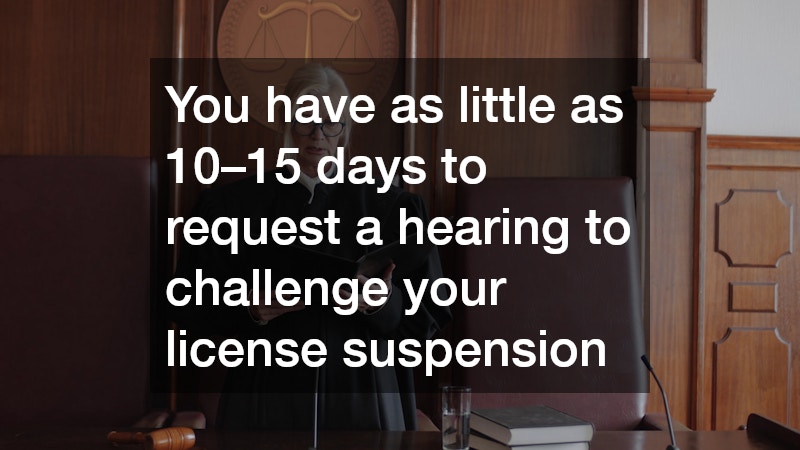Highlights:
-
Stay calm, remain polite, and exercise your right to remain silent during a DWI stop.
-
Understand the risks of refusing or taking sobriety and chemical tests.
-
A DWI arrest triggers immediate consequences like license suspension and bail.
-
Contacting an attorney experienced with DWI and drug charges right away is critical.
-
Preserve evidence such as medical records, dashcam footage, and witness statements.
-
Attend administrative hearings promptly to challenge license suspension.
-
A strong defense strategy can reduce penalties, avoid jail, or even dismiss charges.

Being arrested for Driving While Intoxicated (DWI) is one of the most stressful and life-changing experiences a person can face. From the moment police stop your vehicle, every action you take—or fail to take—can significantly impact the outcome of your case.
Whether it’s your first DWI or you already have prior convictions, knowing what steps to take immediately after an arrest is critical. More importantly, having an attorney experienced with DWI and drug charges on your side can mean the difference between harsh penalties and a more favorable resolution.
This article breaks down the legal steps that matter most right after a DWI arrest. We’ll cover what you should (and should not) do, how to protect your rights, and why professional legal representation is essential.
Step 1: Stay Calm and Exercise Your Rights
When stopped on suspicion of DWI, your behavior during the interaction sets the tone for the rest of the case. Officers are trained to observe everything: how you speak, move, and respond to questions.
What to Do:
-
Remain polite and respectful. Aggressive or argumentative behavior only makes things worse.
-
Exercise your right to remain silent. Beyond providing your license and registration, you are not required to answer potentially incriminating questions like “How much have you had to drink?”
-
Avoid volunteering information. Anything you say can and will be used against you in court.
Why This Matters:
Statements made at the scene often become key evidence. Staying calm while invoking your rights helps your DWI defense attorney later argue against biased or misinterpreted police reports.
Step 2: Understand Field Sobriety and Chemical Tests
After stopping you, an officer may request that you take a field sobriety test or a breathalyzer/blood test.
Field Sobriety Tests:
-
These tests (like walking in a straight line or standing on one leg) are subjective.
-
Results often depend on the officer’s interpretation, not just your performance.
-
You can decline these tests, but refusal may still be used against you.
Chemical Tests (Breath, Blood, or Urine):
-
Most states have implied consent laws. Refusing a chemical test can lead to automatic license suspension, even before a court hearing.
-
Results from these tests are often central to the prosecution’s case.
Legal Insight:
Even if you fail a chemical test, that does not mean the case is over. An attorney experienced with DWI and drug charges can challenge test accuracy, machine calibration, or whether the officer followed proper procedures.
Step 3: Know the Immediate Consequences of Arrest

Being arrested for DWI comes with immediate consequences beyond the criminal charge itself.
Common Immediate Penalties:
-
License Suspension: Your license may be taken on the spot.
-
Vehicle Impoundment: Your car may be towed and stored at your expense.
-
Bail Requirements: You may need to post bail before release.
-
Court Appearance: A hearing date will be scheduled quickly.
Why This Matters:
The clock starts ticking the moment you’re arrested. In many states, you have as little as 10–15 days to request a hearing to challenge your license suspension. Without fast action, you may lose your driving privileges automatically.
Step 4: Contact an Attorney Immediately
This step cannot be emphasized enough. Hiring an attorney experienced with DWI and drug charges is the single most important move you can make after arrest.
Benefits of Hiring a Skilled Attorney:
-
Immediate Protection of Your Rights: Your lawyer ensures you don’t say or do anything that damages your case further.
-
Challenging the Evidence: Breathalyzer results, police reports, and sobriety tests can all be scrutinized.
-
Negotiating Penalties: In some cases, attorneys negotiate reduced charges, lighter sentencing, or alternative penalties like alcohol education programs.
-
Court Representation: Going into court without a professional advocate puts you at a serious disadvantage.
Key Tip:
Not all lawyers are equally skilled. Choose one who is specifically an attorney experienced with DWI and drug charges, not just a general criminal defense attorney. Specialized knowledge matters.
Step 5: Gather and Protect Evidence
The prosecution builds its case quickly. You and your attorney need to be just as proactive.
Evidence to Collect:
-
Police Reports: Your attorney can request these to check for inconsistencies.
-
Witness Statements: Friends, passengers, or bystanders may provide testimony in your defense.
-
Medical Records: If health issues affected your sobriety test performance, medical documentation can help.
-
Video Footage: Body cams, dashcams, or nearby surveillance cameras may capture key moments.
Why This Matters:
Memory fades fast. Preserving evidence immediately after your DWI arrest gives your lawyer more tools to challenge the state’s case.
Step 6: Prepare for the Administrative Hearing
Most states separate the criminal trial from the administrative license hearing.
What to Expect:
-
A hearing is typically scheduled within days or weeks of the arrest.
-
The goal is to determine whether your license should remain suspended.
-
You have the right to have your DWI defense lawyer represent you.
Legal Advantage:
A strong showing at the administrative hearing can help your case later in criminal court. It also allows your attorney experienced with DWI and drug charges to preview the evidence the state intends to use.
Step 7: Consider the Long-Term Consequences
Many people underestimate the long-term fallout of a DWI conviction.
Potential Consequences:
-
Employment Problems: Certain jobs may fire or refuse to hire someone with a DWI.
-
Insurance Increases: Rates often spike dramatically after a conviction.
-
Criminal Record: A DWI remains on your record for years, limiting opportunities.
-
Travel Restrictions: Some countries, like Canada, may deny entry after a DWI.
Why This Matters:
By acting quickly and hiring a qualified attorney experienced with DWI and drug charges, you may avoid or minimize these long-term setbacks.
Step 8: Avoid Common Mistakes After a DWI Arrest
A DWI arrest leaves people shaken, and many unintentionally make choices that damage their case.
Mistakes to Avoid:
-
Talking About Your Case Online: Social media posts can be used as evidence.
-
Ignoring Court Dates: Missing hearings leads to additional charges and penalties.
-
Driving on a Suspended License: This creates a new, serious offense.
-
Failing to Contact a Lawyer Quickly: Waiting too long weakens your defense.
Step 9: Explore Alternatives to Jail Time
A good DWI attorney may be able to help you avoid jail time, depending on the facts of your case.
Possible Alternatives:
-
Probation: Instead of jail, you may serve supervised probation.
-
Alcohol Education/Treatment Programs: Courts often allow these in exchange for reduced sentencing.
-
Community Service: Some judges substitute service for incarceration.
-
Restricted Driving Privileges: In certain cases, you may drive with an ignition interlock device.
Step 10: Plan for Your Defense Strategy
The earlier you start working with an attorney experienced with DWI and drug charges, the stronger your defense strategy will be.
Defense Strategies May Include:
-
Challenging the Traffic Stop: Was there a valid reason for pulling you over?
-
Questioning Test Accuracy: Was the breathalyzer calibrated? Were blood samples handled properly?
-
Highlighting Rights Violations: Were Miranda rights read? Was proper procedure followed?
-
Medical Defenses: Conditions like diabetes or neurological disorders can mimic intoxication.
Detailed Checklist: What to Do Immediately After a DWI Arrest
Here is a quick checklist summarizing the critical steps:
-
Remain calm, polite, and avoid incriminating statements.
-
Understand the implications of refusing or taking sobriety/chemical tests.
-
Be aware of immediate consequences like license suspension and bail.
-
Contact an attorney experienced with DWI and drug charges right away.
-
Collect and preserve evidence such as medical records, dashcam footage, or witness statements.
-
Request and prepare for the administrative license hearing.
-
Anticipate long-term effects and work with your lawyer to reduce them.
-
Avoid mistakes like ignoring court dates or posting about your case online.
-
Explore alternatives to jail time through negotiation.
-
Develop a strong defense strategy tailored to your unique case.
In Summary
A DWI arrest is not the end of the road—but what you do immediately afterward determines much of the outcome. By staying calm, exercising your rights, and contacting an attorney experienced with DWI and drug charges, you give yourself the best chance to protect your freedom, license, and future.
The justice system is complex, and the penalties for DWI can be severe. But with the right guidance and a proactive approach, it’s possible to navigate the process successfully.
If you or someone you know has been arrested for DWI, don’t wait. Contact a qualified attorney today to start building a defense that truly matters.





